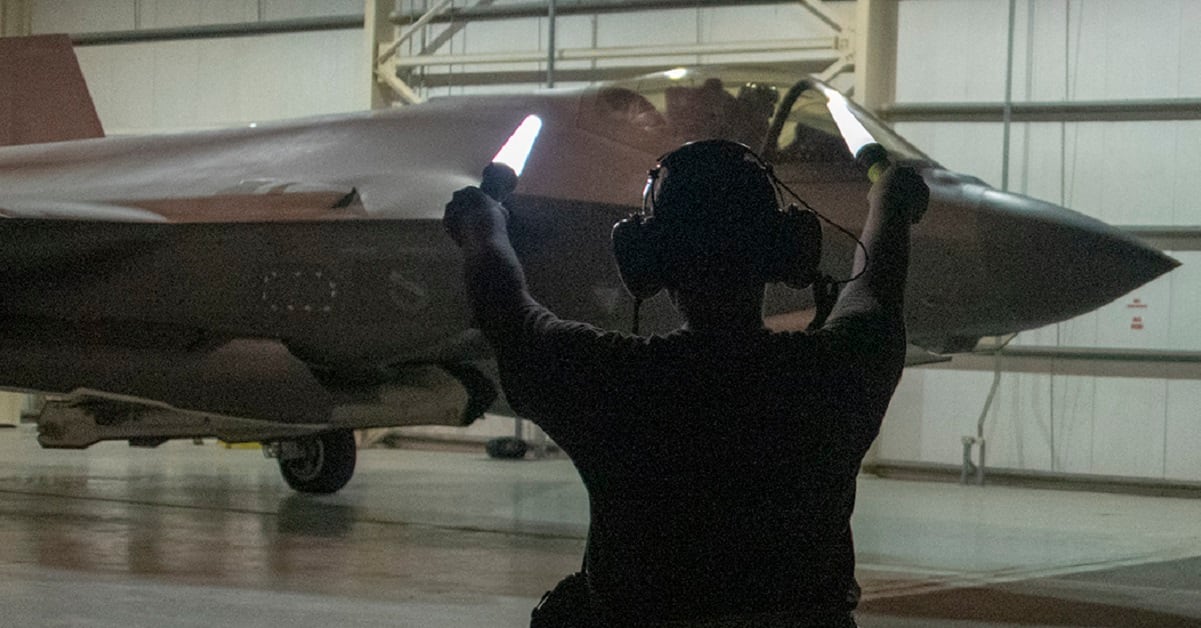Editor’s note: This story was updated July 16, 2021, at 4:15 p.m. EST with information on the official announcement of the nominations.
President Joe Biden on Friday announced he would nominate Andrew Hunter, a well-known defense industry expert, to serve as the Air Force’s next acquisition boss.
Air Force Times broke the news of Hunter’s selection ahead of the White House announcement on Friday afternoon. If confirmed by the Senate, Hunter would become assistant Air Force secretary for acquisition, technology and logistics amid a major push to modernize the service’s aircraft and weaponry.
“He is one of the real defense acquisition experts/professionals in this town,” said John Hamre, CEO and president of the Center for Strategic and International Studies, the Washington think tank where Hunter works. “Lots of people talk about it, but very few are real experts. He is one.”
Hunter directs the defense-industrial initiatives group at CSIS and is a senior fellow in its international security program. A former Pentagon senior executive and Capitol Hill staffer, his work focuses on industrial base policy, trade and innovative technology.
RELATED

Long an outside observer of Air Force procurement, Hunter could soon oversee its hardware and software portfolio worth more than $60 billion. Chief among those programs will be the F-35 Joint Strike Fighter, B-21 Raider bomber, KC-46 Pegasus tanker and multiple nuclear weapons initiatives. Pandemic-era budget constraints promise to complicate efforts to execute a massive upcoming spending plan.

He will likely build on former Air Force acquisition chief Will Roper’s initiatives to streamline development, introduce digital tools and infrastructure like artificial intelligence and cloud computing, and embrace nontraditional partners like Silicon Valley.
Hunter landed the nomination because of his past work with Frank Kendall, the former Pentagon acquisition chief who is Biden’s pick for Air Force secretary, and the qualifications he has garnered in and out of government, according to the White House official.
Colleagues describe him as a low-key, gentle professional who excels at listening to his team. He and Kendall work well together and will be able to hit the ground running at a crucial time of year for defense policymaking and spending decisions, colleagues said.
The United States “needs more Andrews” — people who are masters of their craft without being showy, said Rosa Brooks, a Georgetown University law professor and former counselor to Pentagon policy chief Michèle Flournoy. Hunter and Brooks worked together on Biden’s informal defense policy team during his 2020 presidential run.
RELATED

Hunter got his start in military acquisition issues as a House staffer from 1994 to 2011, rising from a military legislative assistant to former South Carolina Democratic Rep. John Spratt, Jr., to a professional staff member handling acquisition policy for the House Armed Services Committee.
That experience will come in handy as the Air Force negotiates with Congress on its future inventory, experts said.
“Many in Congress remain skeptical of these [Advanced Battle Management System and Next-Generation Air Dominance] efforts and fear that the Air Force is going to waste money on trying to develop cutting-edge technologies that never mature or perform as expected,” noted Stacie Pettyjohn, a senior fellow and defense program director at the Center for a New American Security.

In 2011, Hunter joined the Obama administration as chief of staff to former Defense Secretary Ash Carter and Kendall during their respective tenures as undersecretary of defense for acquisition, technology and logistics.
He also ran the Joint Rapid Acquisition Cell, a unit focused on getting effective technology into the field faster, before joining CSIS in 2014.
Hunter served on the Defense Department landing team during the transition between the Biden and Trump administrations last winter as well.
He is the third person tapped by the Biden administration to fill a senior role in the Air Force so far, after Kendall and undersecretary nominee Gina Ortiz Jones. Neither have been confirmed by the Senate yet.
Several other Air Force secretariat positions are still awaiting a nominee, including the job of assistant secretary for space acquisition and integration — Hunter’s would-be counterpart for the Space Force.
Hunter awaits a nomination hearing with the Senate Armed Services Committee as a dozen of Biden’s other national security picks are stalled in the confirmation process. The White House has tapped 26 people, including Hunter, for key DoD civilian jobs so far, but only six have been confirmed. Sixty-one of the Pentagon’s top civilian posts require Senate confirmation.
Brooks doesn’t anticipate Hunter will hit any hurdles to confirmation. She believes he can keep his cool if it becomes a slog, noting that he never lost his sense of humor during a taxing 2020 presidential campaign.
“That’s not always easy to do,” she said.
Rachel Cohen is the editor of Air Force Times. She joined the publication as its senior reporter in March 2021. Her work has appeared in the Washington Post, the Frederick News-Post (Md.), Air and Space Forces Magazine, Inside Defense, Inside Health Policy and elsewhere.








